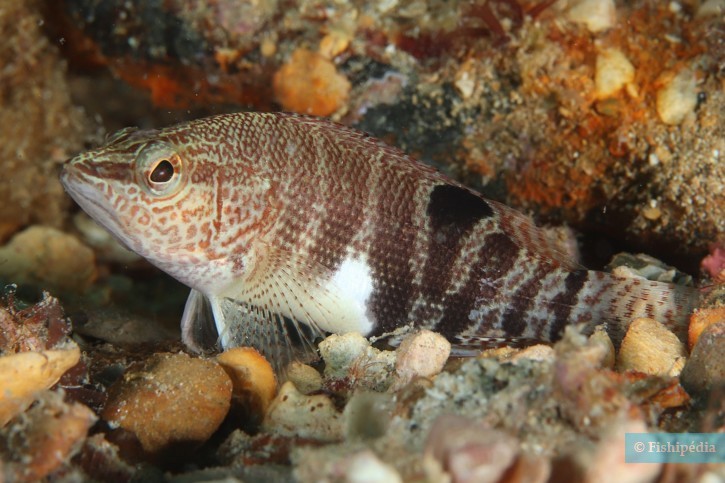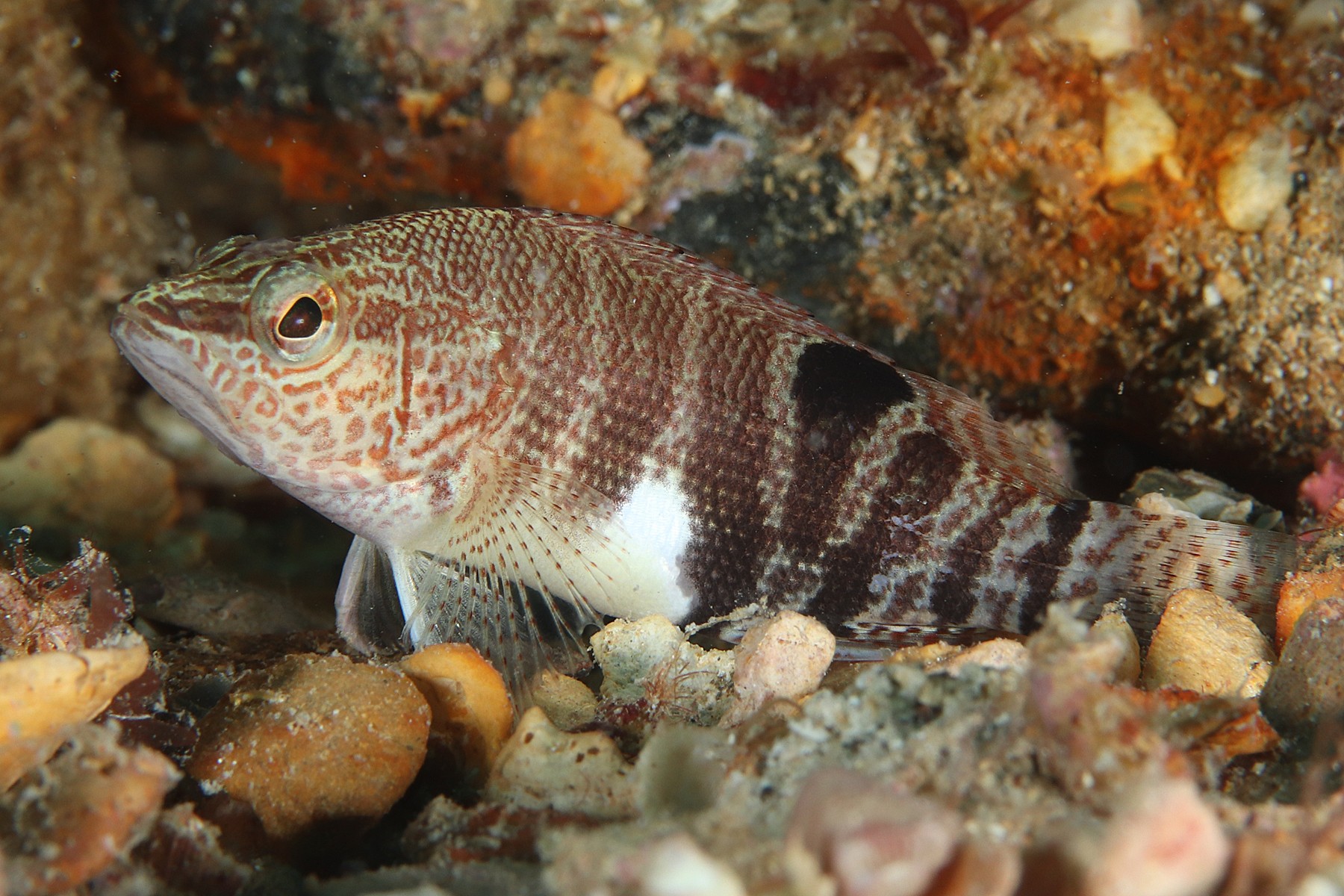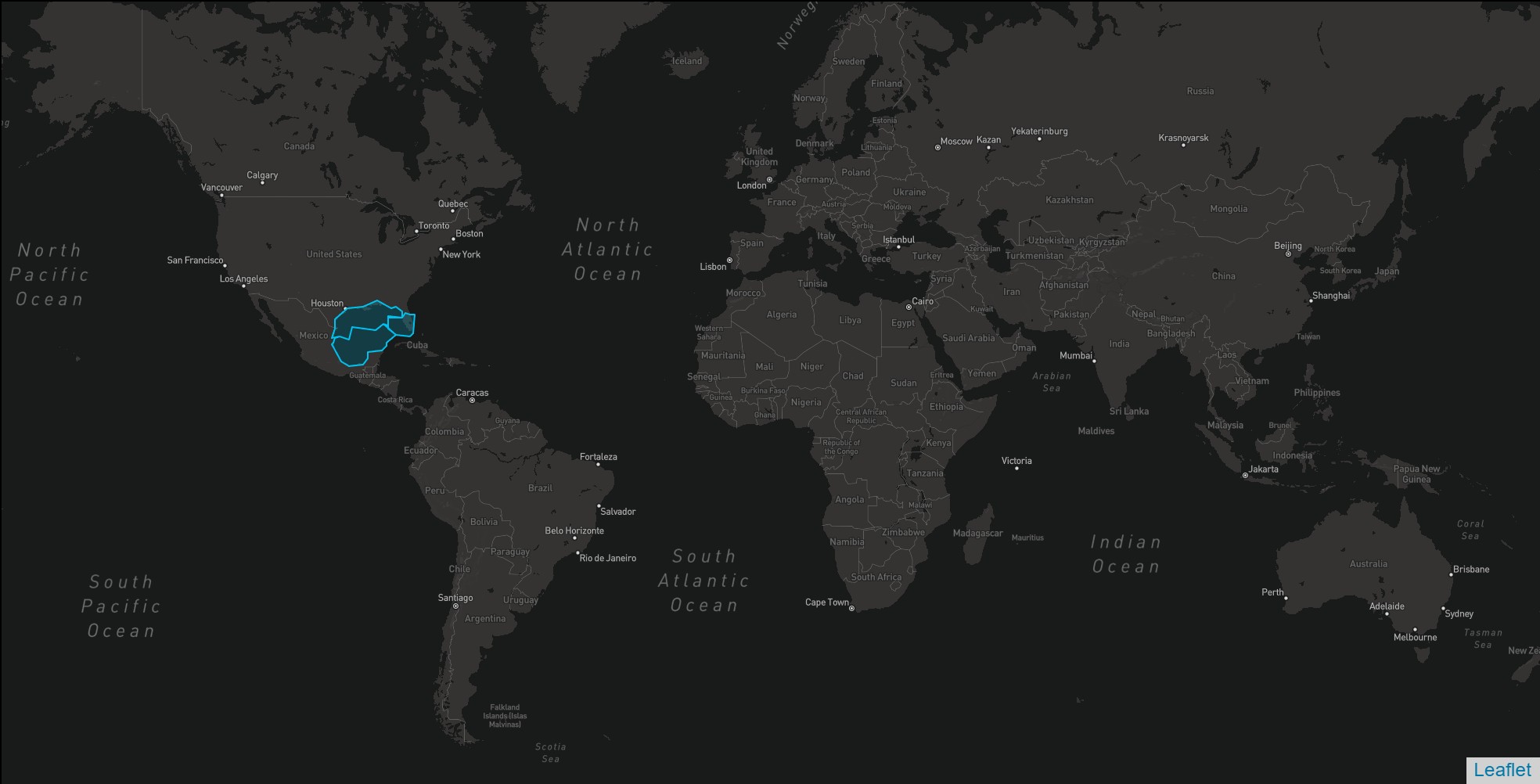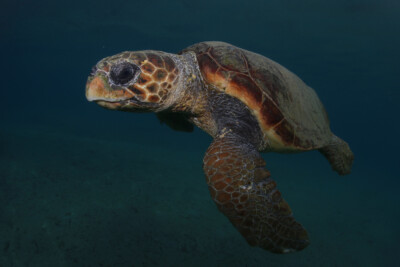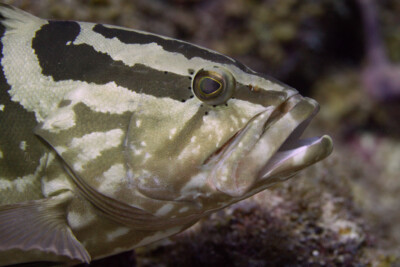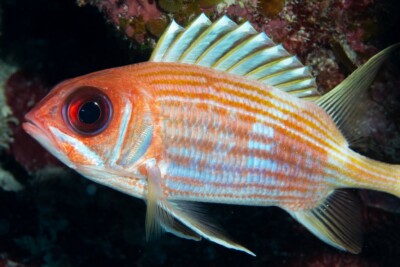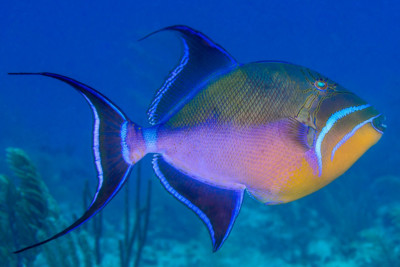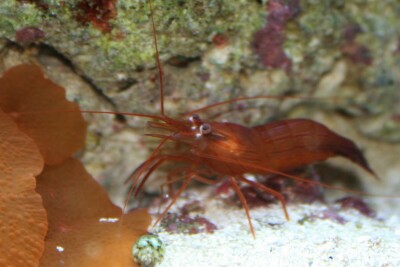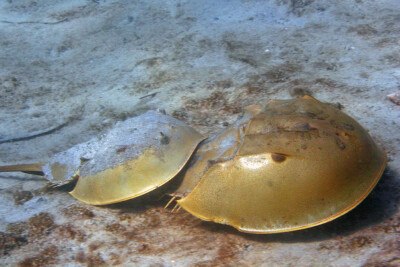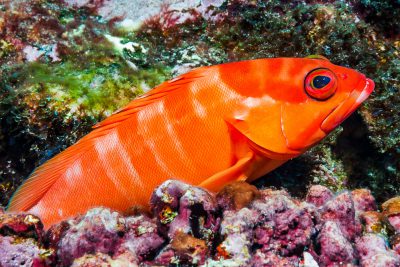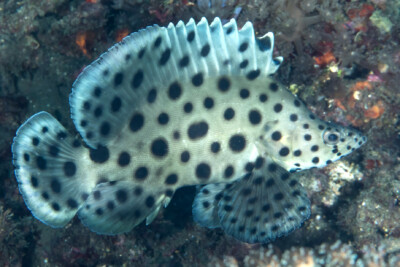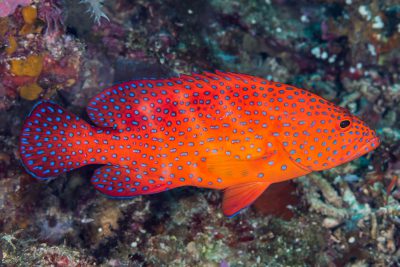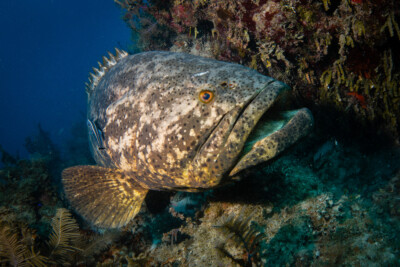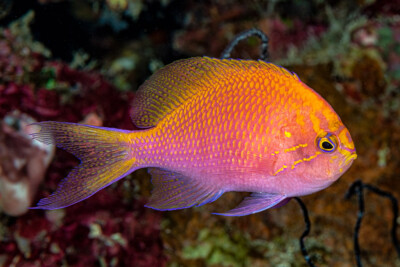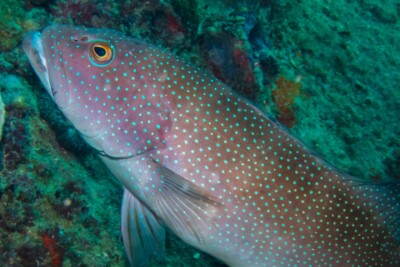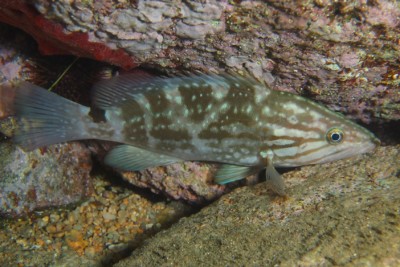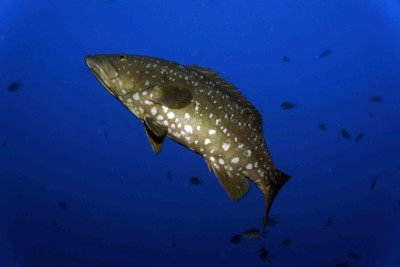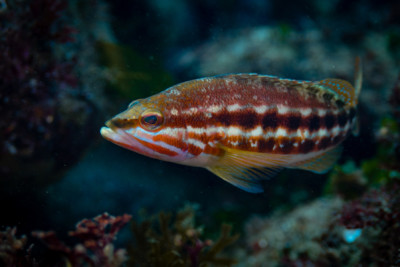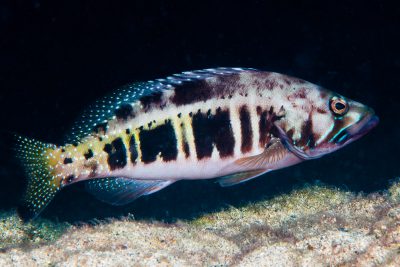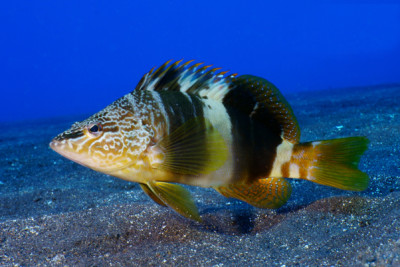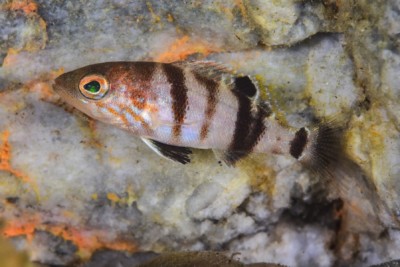Introduction
Serranus subligarius, commonly known as belted sandbass, is a salt water fish from the Gulf of Mexico.
This sheet is currently being prepared. The texts currently proposed come from our data model or are being drafted. To request priority for this content, you can write to us HERE.
Who is it?
Morphology
-
Average size8 cm
-
Maximum size10 cm
-
Patternvertical stripes
-
Average size8 cm
-
Maximum size10 cm
-
Patternvertical stripes
How to recognize This fish ?
The belted sandbass measures between 8 and 10 cm. This fish is tricolore with a predominantly rouge, noir and marron body. The also has noir vertical stripes.
Behaviour & Life cycle
-
dietcarnivorous
-
Sociabilitysolitary
-
territorialYes
-
Way of livingdiurnal
The belted sandbass is a fish solitary naturally found near the bottom. This species is carnivorous .
The belted sandbass is a territorial animal that does not tolerate any incursions into its living area. It is particularly virulent against other territorial species and it can provoke heated fights. Relationships between conspecifics are also hectic, with each seeking to secure its place.
Reproduction
-
Reproductionovipare qui pond en eau libre
The belted sandbass is a fish ovipare qui pond en eau libre.
Harmless species
This species does not represent any particular threats to humans when encountered in its natural environment.
Origin and distribution
Conservation status of populations (IUCN)
What is its habitat?
Natural environment characteristics
-
Temperature15 - 26 °C
-
Depth1 - 18 m
Biotope presentation
The belted sandbass is most often found at a depth between 1m and 18m. However, it is not impossible to find this species at other depths.
Species of the same biotope
Fishkeeping
Not recommended
We do not recommend keeping this species in an aquarium. It has unpredictable needs which, if not met, generate significant stress, potentially leading to a shorter life expectancy, an interruption of its growth or the development of pathogens.
To go further
Sources & Contributions
Participation & Validation
The Fishipedia team and specialist contributors are committed to providing high-quality content. However, although the information comes from scientific sources or testimonials from specialists, the cards may contain inaccuracies.

Benoit Chartrer
Translation
Translation done with the valuable contribution of our translators, who make this information available to a wider audience. We sincerely thank them for their commitment.
Bibliographic references
- - GBIF
- - FAO Species Catalogue. Vol. 16. Groupers of the world (family Serranidae, subfamily Epinephelinae). - Heemstra, P.C - J.E. Randall - FAO Fisheries Synopsis - 1993.
- - SERRANIDAE - P.C. Heemstra - W.D. Anderson - FAO Fisheries Synopsis - 2002.
- - Competition between the comber (Serranus cabrilla) and painted comber (Serranus scriba) at STARESO, Corsica, France. - Anja Sjostrom - Ryan Stephenson - - 0.
- - Spawning season, maturity sizes, and fecundity in blacktail comber (Serranus atricauda) (Serranidae) from the eastern-central Atlantic - José A. González - María J. Lorente - Víctor M. Tuset - - 2003.
Scientific partners
Species of the same family
Same genus
Species of the same biotope
